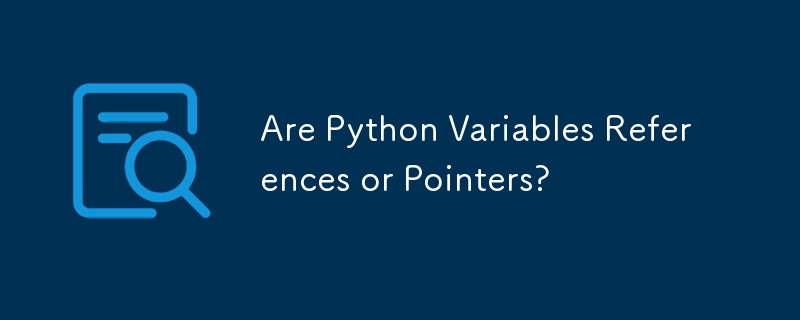

Python Variables: References or Pointers?
When dealing with Python variables, a common misconception is that they behave like pointers in other programming languages. However, a closer examination reveals that they instead operate as references.
Consider the following code snippet:
i = 5 j = i j = 3 print(i)
Contrary to the expectation that this code would print 3, the actual output is 5. This is because i and j do not point to the same variable in memory. Instead, they reference the variable stored at that address.
To illustrate this further, take the following example:
i = [1,2,3] j = i i[0] = 5 print(j)
In this case, i and j both reference the same list object stored in memory, allowing the changes made to i to be reflected in j.
In conclusion, Python variables do not behave like pointers in other languages. Instead, they serve as references to objects stored in memory. This distinction is essential to understand when working with complex data structures in Python.
The above is the detailed content of Are Python Variables References or Pointers?. For more information, please follow other related articles on the PHP Chinese website!




